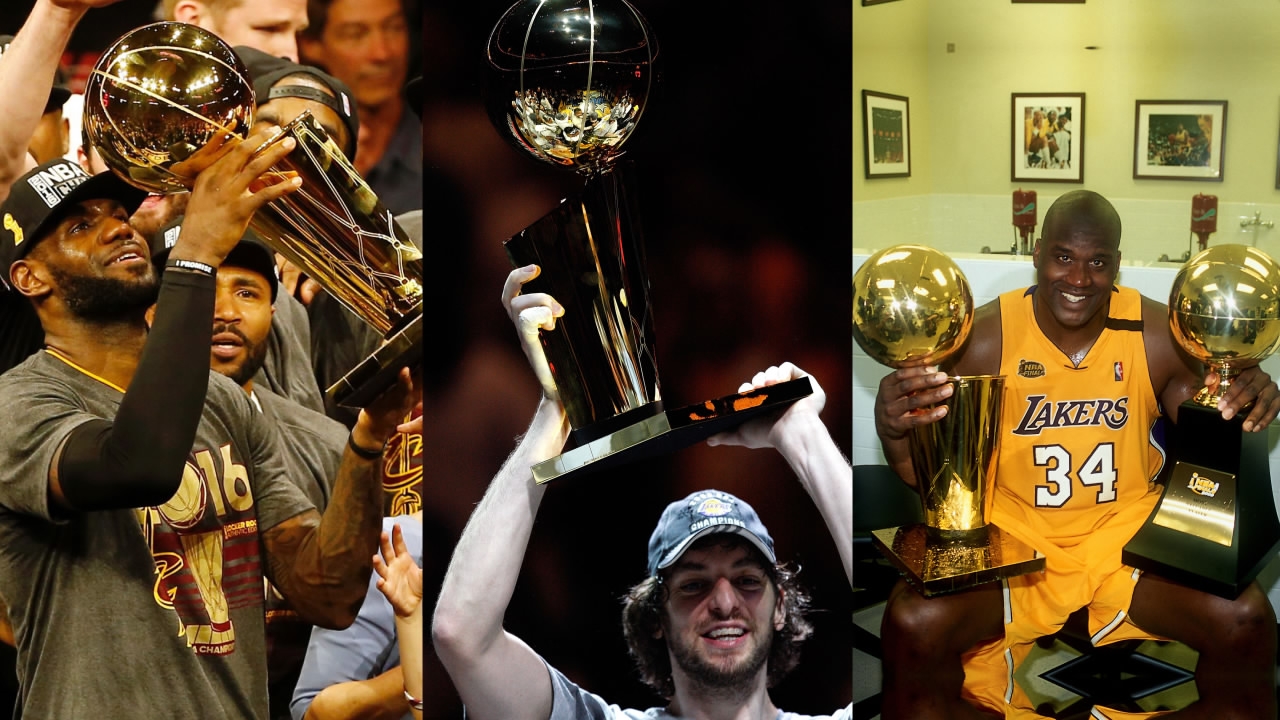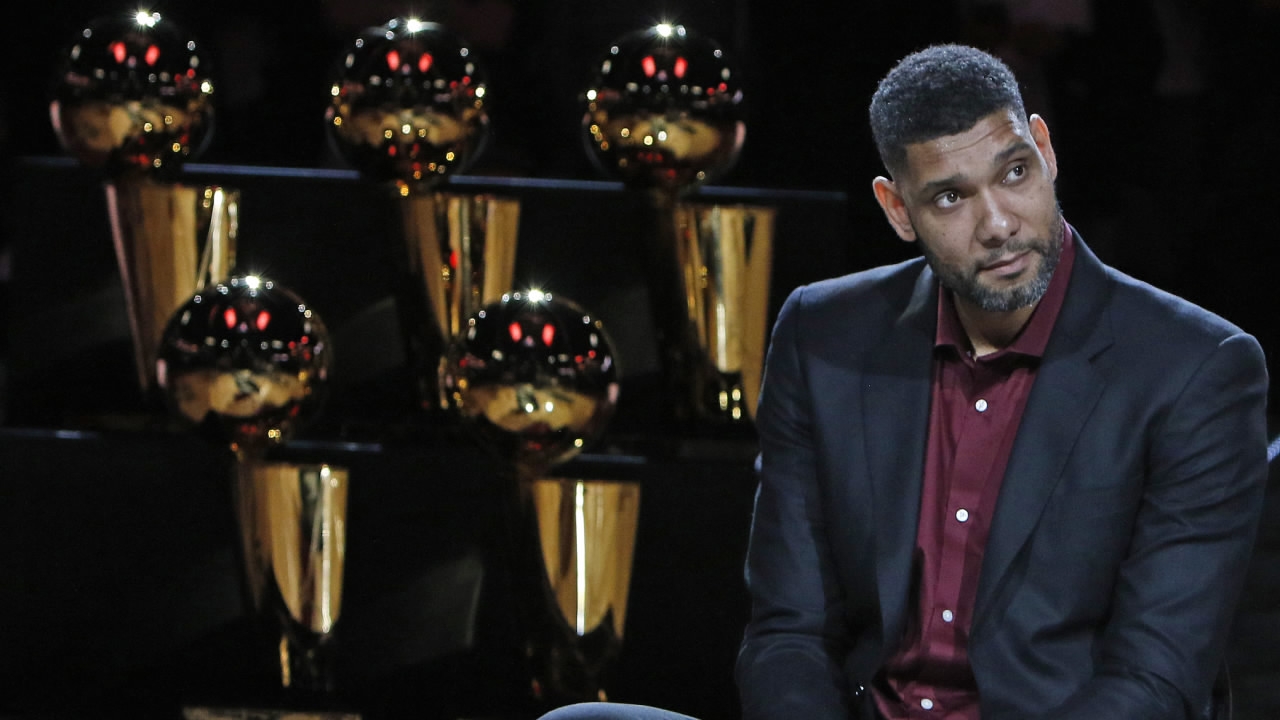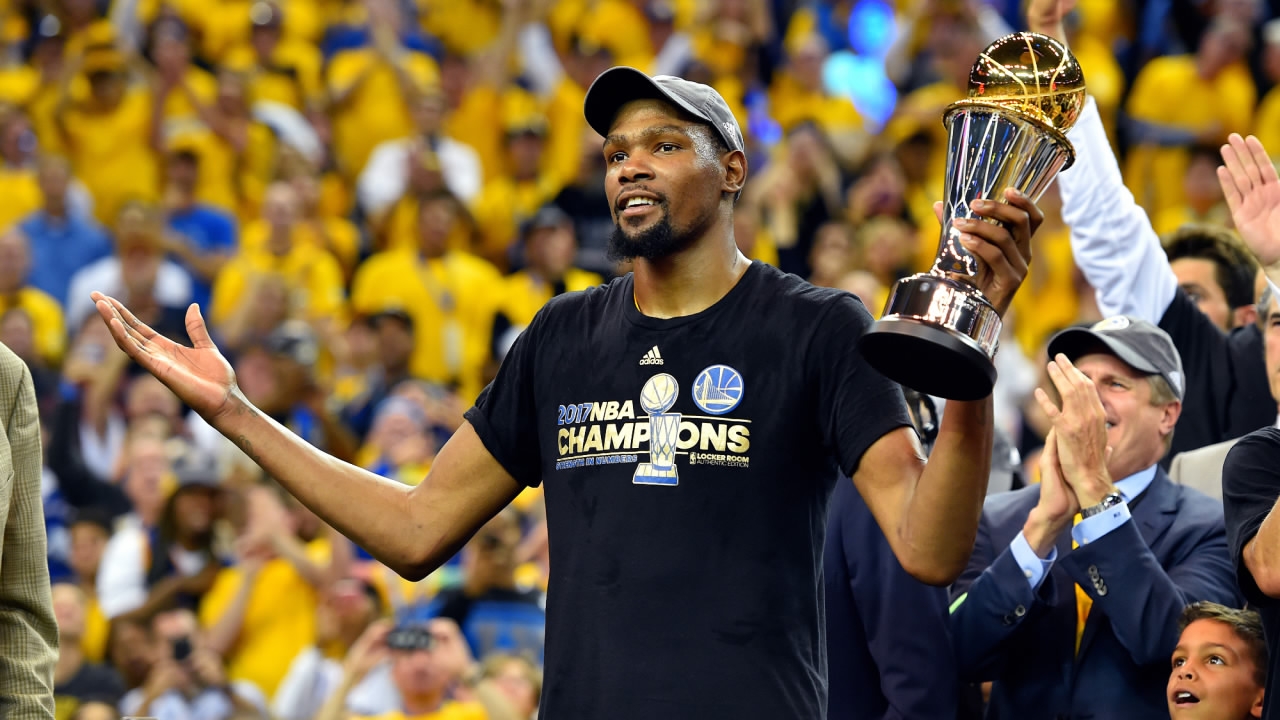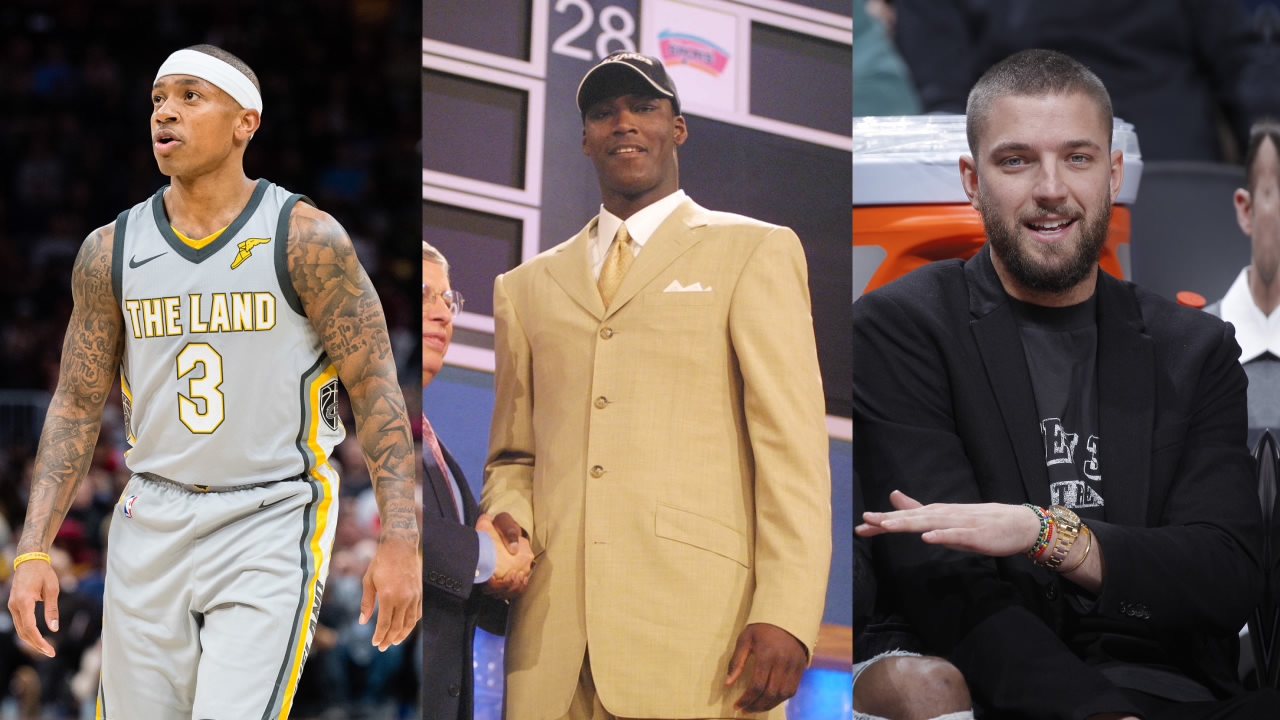
Sports
20:43, 21-Feb-2018
The different ways to make a strong NBA team
Li Xiang

Of the 30 teams in the NBA, technically everyone aims for the championship, which means they all want to have their own super star players who at least can guarantee ticket sales even without the title. For the managers of each team, there are in total three ways to acquire such players.
First way: NBA draft

Tim Duncan has brought five NBA champions to the Spurs since he was selected by the team. /VCG Photo
Tim Duncan has brought five NBA champions to the Spurs since he was selected by the team. /VCG Photo
Selecting young players through the draft is the simplest way to seek a superstar in the NBA. The selected player must join the team and can sign a two-to-four-year rookie contract which is free from luxury tax restrictions. Moreover, if the players perform excellently, the teams can still enjoy the economic benefits of their contracts for years.
In the summer of 1997, the San Antonio Spurs used their first pick to select Tim Duncan from Wake Forest University. It took the rookie only two years to help the Spurs win their first NBA championship in team history. Having been known as "the Big Fundamental", Duncan kept his team in the play-off for the whole 19 years of his career and took five championships in total.
The Cleveland Cavaliers selected LeBron James with the first pick in 2003 NBA draft and in only four years grew from one of the league's weakest teams to a qualified competitor for the title. In 2016, "The King" took the first championship of the four major sports league in North America (NFL, MLB, NBA and NHL) for Cleveland in 52 years.
Second way: Trade

From left to right: Ray Allen, Kevin Garnet, Paul Pierce, the "Big 3" of the Boston Celtics from 2008 to 2012. /VCG Photo
From left to right: Ray Allen, Kevin Garnet, Paul Pierce, the "Big 3" of the Boston Celtics from 2008 to 2012. /VCG Photo
Selecting through the NBA draft is simple but has the risk of choosing the wrong players with valuable pick: The Washington Wizards that selected Kwame Brown in 2001 and the Cavaliers that selected Anthony Bennett in 2013 may never stop talking about how regretful they are. Meanwhile, only a few teams can gain the opportunities to select players with high picks in the draft. Therefore, managers may turn to a more direct option, making trade with other teams.
In the offseason of 2007, the Boston Celtics shocked the league with two trades: They sent eight players and two future picks to the Seattle Sonics and the Minnesota Timberwolves in exchange for Ray Allen and Kevin Garnet who, together with Paul Pierce made the "Big 3" in Boston. Such trades have brought the Celtics to the NBA finals twice in three years and lead to the championship in 2008.
In February 2008, the Los Angeles Lakers traded with the Memphis Grizzlies by sending four players and two future picks in return for Paul Gasol. Besides the fact that the Lakers entered the NBA finals three times in row and won two champions after the trade, the reaction of Gregg Popovich, head coach of the Spurs, showed the influence of this trade: "What they did in Memphis is beyond comprehension. There should be a trade committee that can scratch all trades that make no sense. I just wish I had been on a trade committee that oversees NBA trades. I'd like to elect myself to that committee. I would have voted no to the LA trade."
Third way: Free agent

Kevin Durant joins the Golden State Warriors and helps the team achieve a record-breaking success in the 2017 play-off. /VCG Photo
Kevin Durant joins the Golden State Warriors and helps the team achieve a record-breaking success in the 2017 play-off. /VCG Photo
Like doing business, making trades in NBA requires various skills: Negotiation, calculation, tactics, grasping of timing, insights and so many other things. A manager needs to make sure that his team wins the most and loses the least. However, all of the 30 managers want the same thing, except they need to trade with each other, making their work almost "mission impossible". Fortunately, they have the third option: Signing free agents.
In the summer of 1996, Shaquille O'Neal, one of the league's most intimidating players was negotiating with his team, the Orlando Magic about his new contract. Unsatisfied with the offer, Shaq turned his eyes to other teams and finally signed a seven-year contract worth 121 million US dollars with the Los Angeles Lakers. Together with Kobe, Shaq helped the Lakers take three NBA champions in a row between 2000 and 2002, a miracle that happened for the fifth time in league history.
After two decades, Kevin Durant, who was already an MVP (in 2014) and one of the best scorers in NBA (scoring champions for 2010, 2011, 2012 and 2014) became a free agent and the biggest target on the market. He then decided to join the Golden State Warriors and in one year helped his team take the final champion with a new record of 16 wins and one loss in the play-off.
All three ways are available, but no success is ever guaranteed

From left to right: Isaiah Thomas, Kwame Brown, Chandler Parsons, all are failure examples of trade, draft select and free gent signing in NBA. /VCG Photo
From left to right: Isaiah Thomas, Kwame Brown, Chandler Parsons, all are failure examples of trade, draft select and free gent signing in NBA. /VCG Photo
With the three options above, it may seem not very difficult for a team to have one or more superstar players. However, different risks exist for all of them.
Before a player enters NBA, he has only played in NCAA or for basketball leagues in other countries, none of which has the tough competition that the NBA does. As a result, no matter what great performances a young player has shown before, there is no promise that he can become the savior of his team.
As for trade, first the leverages from all sides must match each other. Second, when a team is willing to let any player go, there must be reasons: Injuries, attitude, age. Any of them can be hidden trouble for his team. Third, players on the court need chemistry to win the game and chemistry takes time to build. Leaving of old players and coming of new people can be very challenging to the franchise.
If a free agent becomes an attractive target on the market, that means he must have already proved his worth and abilities. There are only two things he is after: Money or championships. NBA's current policies have made the first team a player plays for able to provide the fattest contract. Furthermore, thanks to the rise of the Internet, teams of big cities like Los Angeles and New York are less attractive to players in the commercial sector. And if a star player is really desperate enough for a ring, he is more likely to choose a team that already has great players instead of a team that lacks superstars.

SITEMAP
Copyright © 2018 CGTN. Beijing ICP prepared NO.16065310-3
Copyright © 2018 CGTN. Beijing ICP prepared NO.16065310-3